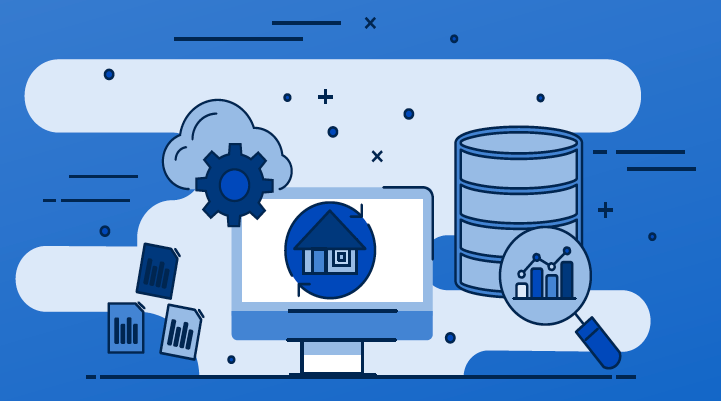DataGalaxy is an innovative start-up from France offering software for data cataloging. Its “human-centric approach” addresses business users and is designed to enable them to efficiently create value from data. In doing so, DataGalaxy focuses on user-friendliness and consistent processes for business users, integration with other tools, adaptability and attractive pricing. This is intended to support and simplify one of the most challenging exercises in the use of business software: breaking down barriers and creating user acceptance, motivating knowledge sharing and thus supporting data democratization.
The company
DataGalaxy was founded in 2015 in Lyon, France, by Lazhar Sellami and Sébastien Thomas. The privately held company now has over 65 employees and can boast more than 110 customers, mainly in the upper mid-market in France, Belgium, Switzerland, UK and Portugal. Still headquartered in Lyon, the company has recently opened an office in the USA and further expansion into German-speaking countries is planned.
In 2022, the start-up received a second undisclosed seed investment following its first in 2020, which amounted to €1.7 million. It has three investors in total.
More than 20 partners are able to assist with larger implementations. Training and the creation of a first MVP can be done directly after purchasing DataGalaxy. After that, the customer has access to training videos and a knowledge platform.
The solution: Data Catalog 360
DataGalaxy positions itself as a specialist in the field of data cataloging. Its Data Catalog 360 product is an independent tool that is not tied to any specific tool or environment. It is mainly used for data cataloging, data governance, compliance & regulatory use cases or as a metadata hub.
Metadata can be extracted from any source and made available. More than 70 connectors are offered for this purpose along with a full library of open APIs. Core functions for data cataloging such as search & discovery, business glossary and data lineage are available and can be used to implement many use cases. Compared to the market leaders in this area, DataGalaxy’s range of functions is smaller. However, its openness and ability to integrate with other tools allows customers to construct an ecosystem of best-of-breed solutions by adding third-party offerings, for example, for data quality, collaboration, governance and data profiling.
DataGalaxy sees itself as an integral part of an existing metadata ecosystem, intent on connecting components with each other in such a way that a seamless data & analytics process is created for the end user. Openness and extensibility are fundamental to this. Six close technology partnerships are already in place, and the roadmap now includes integrations with collaboration tools such as Jira, Slack and Microsoft Teams.
The offering is quite inexpensive compared to most competitors, which is helping DataGalaxy to quickly expand its customer base. Its pricing model is flexible and based on the number of data stewards (people who maintain metadata in the catalog) or, if there are many stewards, on the infrastructure resources required. This makes it easier to bring the data catalog into the company without having to constantly purchase additional licenses.
Automation to support metadata curation processes (e.g., by machine learning) is not available yet, but work is underway on this. However, DataGalaxy does offer prebuilt content (metadata models) for companies in specific industries to get up and running quickly.
Analyst opinion
All in all, DataGalaxy provides an interesting and, above all, inexpensive offering. Its focus on usability, openness, integration capabilities (comprehensive API concept), easy adaptability and extensibility looks promising for companies building a metadata ecosystem. Integration with other tools to support end-to-end processes for business users still needs to be proven. Its core functions already cover many data catalog requirements, and it has a good footprint in the market with 110 customers and 65 employees. The partner landscape still has room for expansion (i.e., with more technology partners).
DataGalaxy is a newcomer with good potential and can be compared with providers such as Zeenea and Synabi. Personally, I would like to see mechanisms included to automate the metadata curation process. From my point of view, automation is an essential element to ease the burden on the already scarce resources of data experts. Overall, DataGalaxy makes data cataloging affordable without having to buy large platforms and face excessive complexity.




